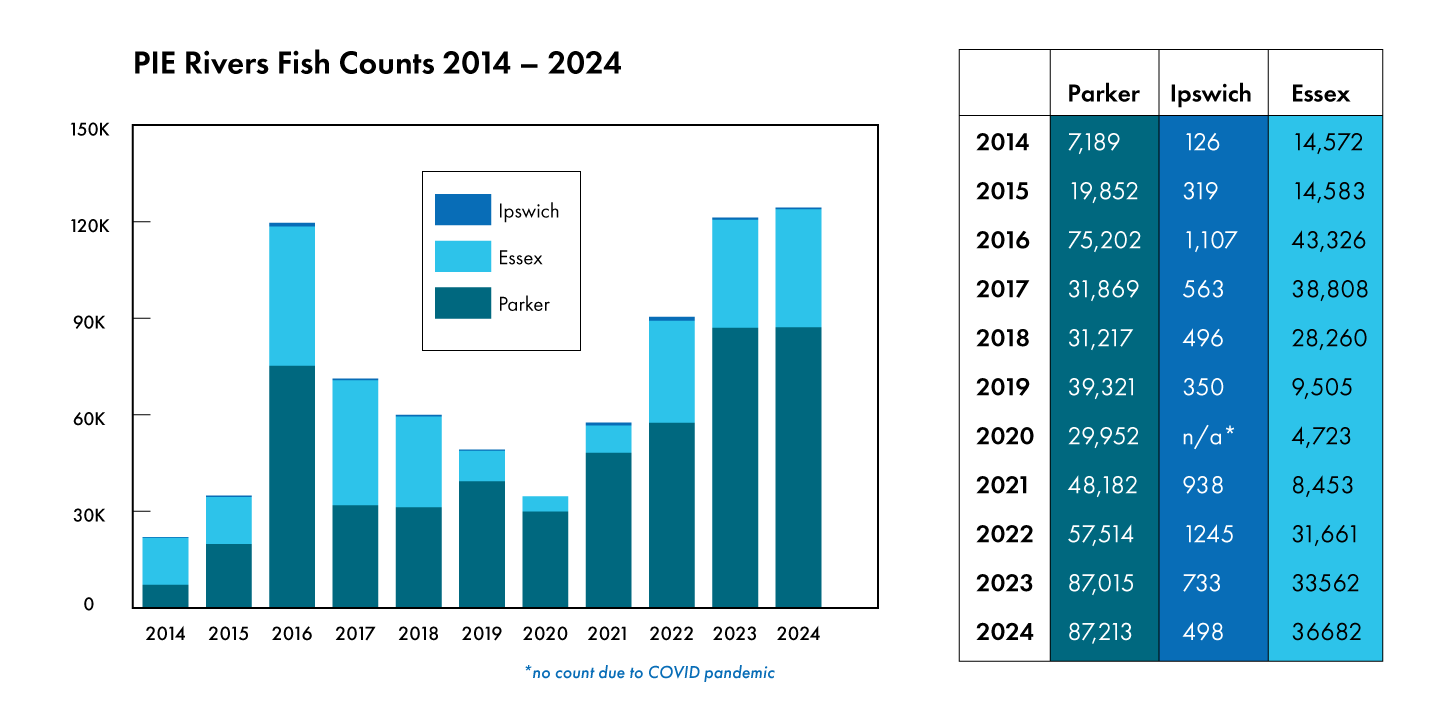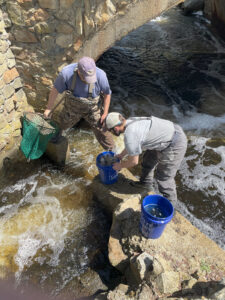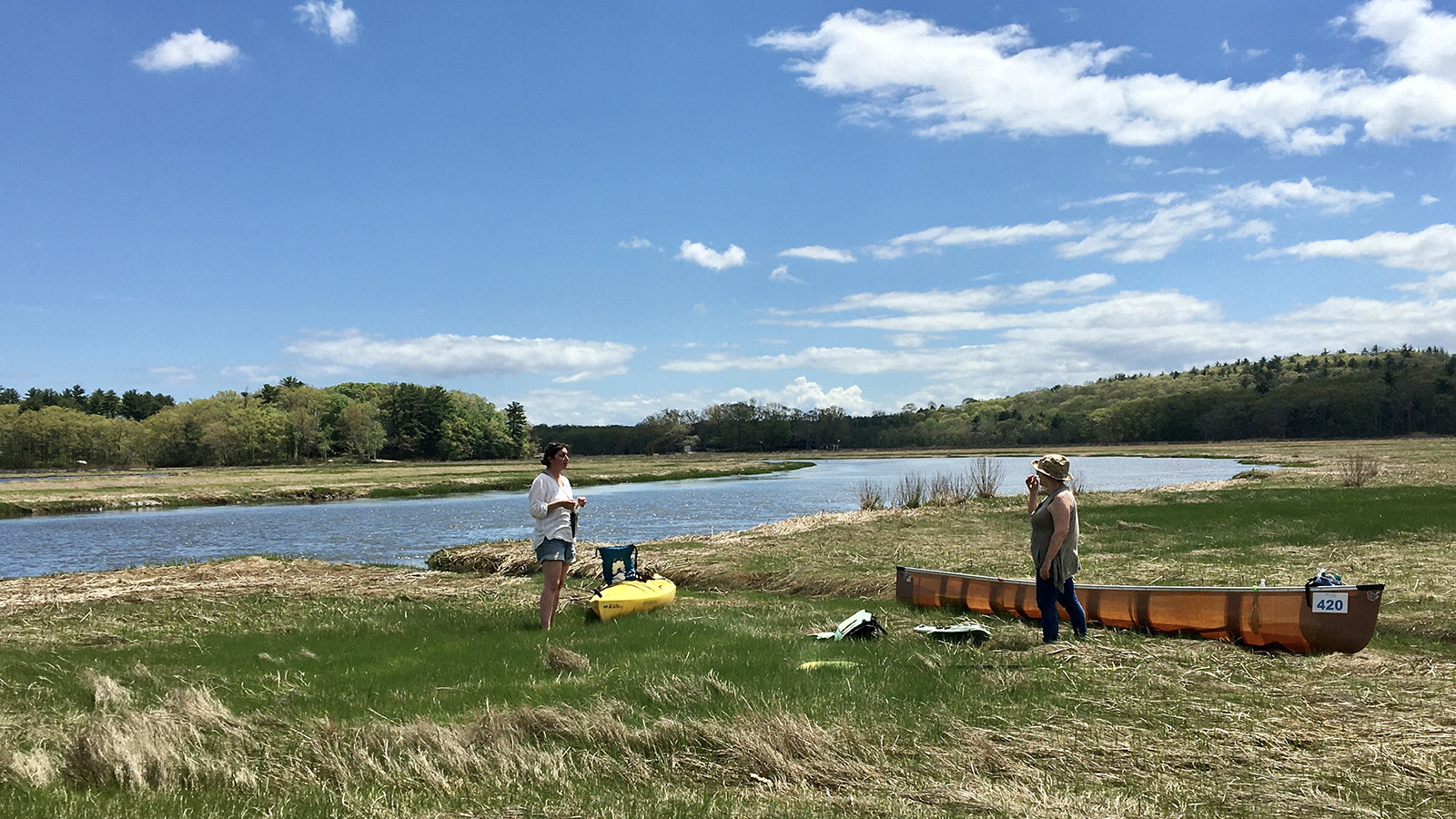Since 2023, IRWA has been working with NOAA through a cooperative agreement that aims to…

All About PIE Rivers Fish Counts
Following the recent clearing at Alewife Brook to improve fish passage, many people have been curious about how the three PIE rivers compare. With the help of the Massachusetts Division of Marine Fisheries (DMF), we’ve gathered10 years worth of data.
First, why count fish in our rivers? Counting fish like river herring helps estimate their population during their spring spawning run from the ocean to coastal rivers. Techniques include a mix of visual counts, underwater video monitoring, and electronic counters. The count helps to assess the health of river ecosystems, as river herring are vital to the food web.

Parker River
The uptick in the Parker has a lot to do with ladder improvements and stocking throughout the watershed. Tagging work has shown that many fish in the Parker spawn in the Central St. Dam headpond, and the count includes many “repeat customers”, i.e., fish that go up the ladder, spawn, then go back downstream just to do it again the next day. The count is high and increased after ladder improvements, but it is a biased estimate.
Ipswich River
Loss of access to habitat, water withdrawals, and drought have been the main factors in low count on the Ipswich River. With the removal of the Ipswich Mills Dam on the horizon, as well as a nature-like fishway planned for Willowdale, and improvements at Howlett Brook, the future for migrating fish in the Ipswich River is bright.
Essex River
Low flows seem to be the main culprit causing up and downs the Essex River count. Alewife Brook, went dry even in non-drought years. Better and more consistent conditions since 2017, along with maintenance stream cleaning, has helped that run recover. While the habitat exists to support 100’s of thousands, 2025 will be a year to watch as the 2022 drought year-class matures.
Thanks to Ben Gahagan and Joe Holbech at DMF for contributions to this blog post!



Comments (0)